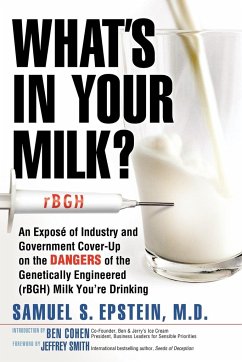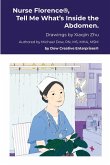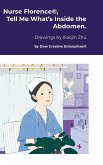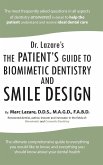Samuel S. MD Epstein
What's in Your Milk?
An Expose of Industry and Government Cover-Up on the Dangers of the Genetically Engineered (Rbgh) Milk You're Drinking
22,99 €
inkl. MwSt.
Versandfertig in 1-2 Wochen

11 °P sammeln
Samuel S. MD Epstein
What's in Your Milk?
An Expose of Industry and Government Cover-Up on the Dangers of the Genetically Engineered (Rbgh) Milk You're Drinking
- Broschiertes Buch
- Merkliste
- Auf die Merkliste
- Bewerten Bewerten
- Teilen
- Produkt teilen
- Produkterinnerung
- Produkterinnerung
Dangers, especially to children, of non-organic milk contaminated be a genetically engineered growth hormone without any warning of its difference from natural milk, and of its cancer risks.
Andere Kunden interessierten sich auch für
![What's In Your Diet What's In Your Diet]() Maurice JacksonWhat's In Your Diet27,99 €
Maurice JacksonWhat's In Your Diet27,99 €![What's In Your Diet? What's In Your Diet?]() Maurice JacksonWhat's In Your Diet?21,99 €
Maurice JacksonWhat's In Your Diet?21,99 €![What's Right For Me? What's Right For Me?]() Sara WickhamWhat's Right For Me?18,99 €
Sara WickhamWhat's Right For Me?18,99 €![Nurse Florence®, Tell Me What's Inside the Abdomen. Nurse Florence®, Tell Me What's Inside the Abdomen.]() Michael DowNurse Florence®, Tell Me What's Inside the Abdomen.20,99 €
Michael DowNurse Florence®, Tell Me What's Inside the Abdomen.20,99 €![Nurse Florence®, Tell Me What's Inside the Abdomen. Nurse Florence®, Tell Me What's Inside the Abdomen.]() Michael DowNurse Florence®, Tell Me What's Inside the Abdomen.33,99 €
Michael DowNurse Florence®, Tell Me What's Inside the Abdomen.33,99 €![Don't Leave Momma Home With the Dog Don't Leave Momma Home With the Dog]() Jo HueyDon't Leave Momma Home With the Dog17,99 €
Jo HueyDon't Leave Momma Home With the Dog17,99 €![Dr. Lazare's Dr. Lazare's]() Marc Lazare D. D. S. M. A. G. D F. A. B. D.Dr. Lazare's24,99 €
Marc Lazare D. D. S. M. A. G. D F. A. B. D.Dr. Lazare's24,99 €-
-
-
Dangers, especially to children, of non-organic milk contaminated be a genetically engineered growth hormone without any warning of its difference from natural milk, and of its cancer risks.
Produktdetails
- Produktdetails
- Verlag: Trafford Publishing
- Seitenzahl: 344
- Erscheinungstermin: 23. August 2006
- Englisch
- Abmessung: 229mm x 152mm x 21mm
- Gewicht: 559g
- ISBN-13: 9781412089203
- ISBN-10: 1412089204
- Artikelnr.: 22551819
- Herstellerkennzeichnung
- Libri GmbH
- Europaallee 1
- 36244 Bad Hersfeld
- gpsr@libri.de
- Verlag: Trafford Publishing
- Seitenzahl: 344
- Erscheinungstermin: 23. August 2006
- Englisch
- Abmessung: 229mm x 152mm x 21mm
- Gewicht: 559g
- ISBN-13: 9781412089203
- ISBN-10: 1412089204
- Artikelnr.: 22551819
- Herstellerkennzeichnung
- Libri GmbH
- Europaallee 1
- 36244 Bad Hersfeld
- gpsr@libri.de
Samuel S. Epstein, M.D., D. Path., D.T.M&H, Professor Emeritus of Environmental and Occupational Medicine at the School of Public Health, University of Illinois at Chicago, is an internationally recognized authority on the mechanisms of carcinogenesis, the causes and prevention of cancer, and the toxic and carcinogenic effects of environmental pollutants in air, water, soil and the workplace, and of ingredients and contaminants in consumer products--food, cosmetics and toiletries, household products--and related public policy concerns. He has published some 270 peer reviewed scientific articles, and authored or co-authored twelve books: the 1971 Mutagenicity of Pesticides; the 1971 Drugs of Abuse: Genetic and Other Chronic Non-Psychiatric Hazards; the 1974 The Legislation of Product Safety: Consumer Health and Product Hazards; the prize-winning 1978 The Politics of Cancer; the 1982 Hazardous Wastes in America; the 1983 Cancer in Britain: The Politics of Prevention; the 1995 Safe Shopper's Bible; the 1998 Breast Cancer Prevention Program; the 1998 The Politics of Cancer Revisited; the 2001 Got (Genetically Engineered) Milk! The Monsanto rBGH/BST Milk Wars Handbook (e-book); the 2001 Unreasonable Risk. How to Avoid Cancer from Cosmetics and Personal Care Products; and the 2005 Cancer-Gate: How to Win the Losing Cancer War. He has contributed numerous editorials and letters to leading national newspapers, and has published over 100 press releases, over the last decade, on the politics of cancer, and on avoidable causes of cancer, particularly in consumer products. Dr. Epstein's past committee and society involvements include: Chairman of the Air Pollution Control Association Committee on Biological Effects of Air Pollutants; President of the Society of Occupational and Environmental Health; Founder and Secretary of the Environmental Mutagen Society; advisor to a wide range of public interest, environmental, citizen activist and organized labor groups; Co-Chairman of the Commission for the Advancement of Public Interest Organizations (CAPIO); and President of the Rachel Carson Council, Inc. In 1993, he founded the non-profit international Cancer Prevention Coalition of which he is the Chairman. Dr. Epstein's activities in the interface between science and public policy include: the lead expert witness involved in the banning of DDT; consultant to the U.S. Senate Committee on Public Works; drafting Congressional legislation; frequent invited Congressional testimony; and membership of key federal agency advisory committees including the EPA Health Effects Advisory Committee, and the 1973 Department of Labor Advisory Committee on the Regulationof Occupational Carcinogens. He was EPA's key expert witness involved in the banning of hazardous products and pesticides, including Aldrin and Chlordane. He is the leading international expert on the public health hazards of the biosynthetic bovine growth hormone (rBGH) used for increasing milk production, and of sex hormones used for fattening cattle in feedlots, on which he consulted for the E.C., testified on its behalf at the January 1997 World Trade Organisation hearings, and presented testimony to the EU Parliament in May, 1997. In December 1998, he presented draft "Legislative Proposals for Reversing the Cancer Epidemic" to the Swedish Parliament, and subsequently to the U.K. All Parliamentary Cancer Group in June 1999. In May 2004, he presented an analysis of the EU's 2001 and 2003 REACH (Registration, Evaluation, and Authorization of CHemicals) initiatives for regulating industrial chemicals at UNESCO in Paris. Dr. Epstein's honors include: medals and prizes in the U.K. Royal Army Medical Corp.; the 1957 British Empire Cancer Campaign (now the CRC) Fellowship at The Hospital for Sick Children Great Ormond Street and the Chester Beatty Cancer Research Institute, London; the 1969 Society of Toxicology Achievement Award; the 1977 National Conser







